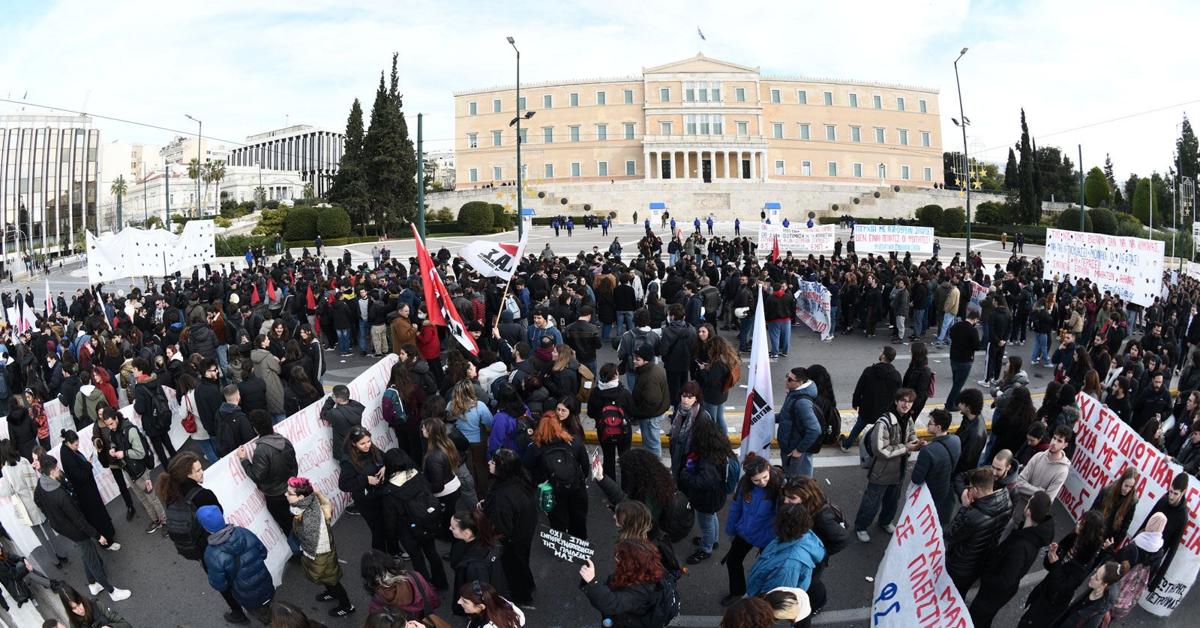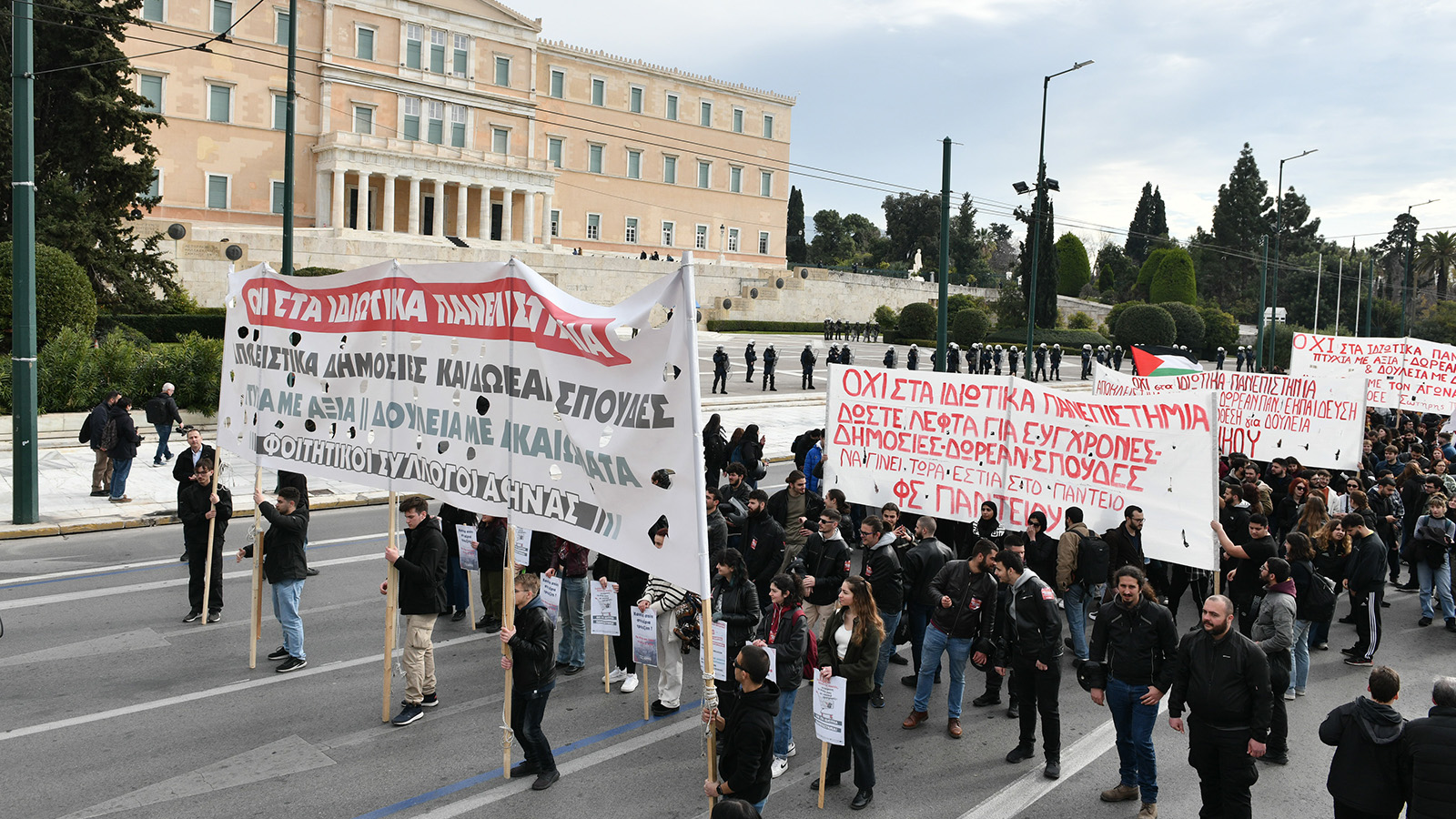
The Greek government is actively pushing legislation to establish nonprofit private universities, which has sparked widespread protests and controversy.
This development, seen as a direct challenge to the country's constitutionally mandated public education system, faces fierce opposition from students, teachers and various educational bodies.
The Senate of the Aristotelian University of Thessaloniki has expressed serious concerns about the new institutions' lack of adequate guarantees for reliable and quality academic operations. They emphasize the need for substantial support for public universities before considering any reforms.
Students country-wide have been protesting for over two months, with many university departments facing ongoing occupations.
The opposition extends beyond students; lecturers from the University of Athens and the Athens University of Law have joined the protests. They express reservations about the bill's potential constitutional conflicts.

The government's approach to this sensitive issue has drawn criticism for its haste and lack of thorough public consultation. Opposition parties echo this criticism.
PASOK leader Nikos Androulakis emphasizes the need for a constitutional amendment before establishing such universities.
SYRIZA's educational representative, Dionysis Kalamatianos, points out the government's disregard for the academic community's widespread resistance to this backward reform.
Kostas Papadakis, a member of the Communist Party of Greece (KKE), highlights the financial burdens private universities could impose on students and their families, potentially trapping them in debt.
Amid these developments, a significant demonstration is planned for March 8, coinciding with the bill's parliamentary voting, to amplify public disapproval.
The controversy surrounding private universities in Greece also extends to the entrance examinations for these institutions.
Reports indicate that the entry process will involve calculating grades from all three high school years, particularly the final year.
This system aims to integrate the established framework of national exams with a robust national high school diploma, creating a more credible university entrance system.
Source: Newsroom